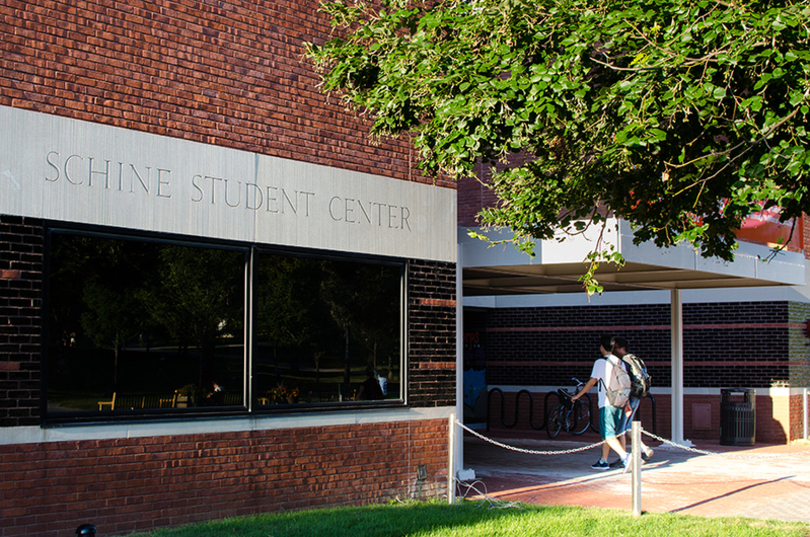New job-recruiting database raises privacy questions

Kiran Ramsey | Senior Design Editor
Syracuse University Career Services is considering switching from Symplicity, the current software system that powers OrangeLink, to Handshake in several years.
A popular software startup that Syracuse University could soon use, designed to connect college students to jobs at companies, is raising concerns about its use of students’ private information, including grade-point averages.
The startup, called Handshake, has been increasing in popularity after its founding three years ago. It has so far connected more than 120,000 employers with more than 3.5 million students, according to its website. Inside Higher Ed reported on March 30 that it has found students who do not remember posting their GPAs, let alone creating an account for the database.
Syracuse University Career Services is considering switching from Symplicity, the current software system that powers OrangeLink, to Handshake in several years, said Susan Call, associate director of employer relations.
From what Call has heard from career service conferences, she said Handshake is more user-friendly than Symplicity. Created by engineering students from Michigan Technological University, the founders were looking for an easier way to connect employers and students, especially in places that aren’t major cities.
Another appealing feature of Handshake is its employer reliability, Call said. Often, fake companies claiming they are looking for jobs scam students and the students end up wasting time and money. Handshake verifies the companies that recruit through its software so that this fraud is no longer a risk, Call said.
More than 170 universities have already begun using Handshake, including SU peer institutions Cornell University and the University of Rochester. Alex Hochman, senior director of the career services center at University of San Francisco, will be switching the university’s system from Symplicity to Handshake beginning June 1.
“I very much appreciate Handshake’s startup, forward-thinking culture,” Hochman said.
Upon hearing the questions about the release of students’ GPAs, Hochman said he was not concerned and still excited to begin working with Handshake. He said there was an easy solution.
“At my school (career services is) not going to upload the GPAs, and if a student wants to put their GPA, they can,” he said.
For SU, Call said career services would have to go over the contract and terms of service, but that it would be up to the students to input their GPA, similar to the current process with OrangeLink. She said that she has heard positive feedback about Handshake from other universities and even recruiters, from companies such as JPMorgan Chase.
If students’ grades are being released without their permission, as reported by Inside Higher Ed, the institutions could be in violation of the Federal Educational Rights and Privacy Act, a federal privacy law that protects student records maintained by an institution, said Helen Garrett, University of Washington registrar and FERPA expert.
“Handshake is not subject to FERPA, institutions of higher education receiving Title IV funding are,” said Helen Garrett, University of Washington registrar and FERPA expert. “So in terms of FERPA, (Handshake) would suffer nothing.”
Garrett noted it is unlikely that career services would be able to release GPAs, because the registrar usually protects that information.
Handshake founders have said that they are planning to update the terms of service for better readability, according to the Inside Higher Ed article.
Handshake states in its terms of service that when a student makes an account, the student consents to share with employers whatever information that student puts on his or her profile. FERPA violations only occur when schools share personally identifiable student information.
“One of the fundamental principles of privacy in general is the idea of notice and consent,” said Elana Zeide, associate research scholar at Princeton University’s Center for Information Technology. “People should know what information people are collecting about them and consent when that information is disclosed to others.”




